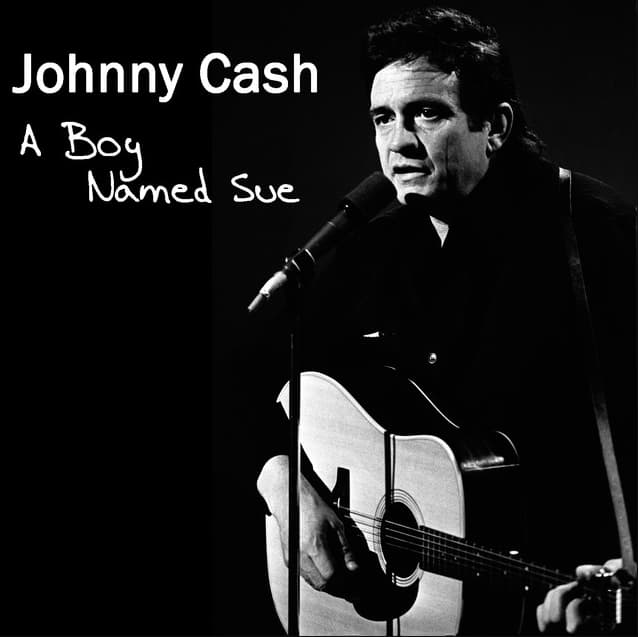
Johnny Cash’s Chart-Topping Tale of Vengeance and Redemption: “A Boy Named Sue”
When Johnny Cash stepped onto the stage at San Quentin State Prison on February 24, 1969, he was about to deliver a performance that would etch itself into the annals of country music history. The song was “A Boy Named Sue,” a narrative piece penned by the whimsical and profound Shel Silverstein. This live rendition not only captivated the inmates but also catapulted Cash to new heights in the music industry, marking a significant milestone in his illustrious career.
“A Boy Named Sue” soared to unprecedented success following its release. It clinched the No. 2 spot on the Billboard Hot 100, stubbornly holding its ground for three weeks, narrowly missing the top spot due to The Rolling Stones’ “Honky Tonk Women.” However, it didn’t stop there; the track also dominated the Billboard Hot Country Songs and Easy Listening charts, showcasing Cash’s versatile appeal across different listener demographics. The song was not only a hit—it was a phenomenon, earning a Gold certification by the RIAA shortly after its release.
The appeal of “A Boy Named Sue” lies in its compelling storyline and Cash’s masterful delivery. The song narrates the tumultuous journey of a young man named Sue, a name typically associated with women, which leads to a lifetime of ridicule and hardship. This name, given by his absent father, propels Sue into a life of nomadic toughness, fueled by a burning desire for revenge. The climax of the song occurs in a dusty tavern in Gatlinburg, Tennessee, where Sue confronts his father. The ensuing brawl, filled with anger and revelations, ultimately leads to an unexpected reconciliation, as Sue understands the tough love his father intended by giving him that name.
Cash’s performance style for “A Boy Named Sue” is particularly notable. Unlike traditional singing, he adopts a talking blues style that adds a raw, personal touch to the storytelling. This method not only enhances the narrative but also mirrors the song’s themes of rugged individualism and confrontation. The song’s structure, with its unusual AABCCB rhyme scheme, further accentuates the dramatic arc of the story, making each verse a crucial piece of the narrative puzzle.
The song also faced its share of controversy, particularly regarding its language. The line “I’m the son of a bitch that named you Sue!” was censored in the original San Quentin recording and in various public performances. Cash, known for his rebellious spirit, creatively bleeped out the word in live performances, adding a layer of humor and raw authenticity that endeared him even more to his audience.
The inspiration behind “A Boy Named Sue” can be traced back to Cash’s friend, Shel Silverstein, and potentially to the humorist Jean Shepherd, who similarly suffered due to his feminine-sounding name. Furthermore, the song reflects broader themes of identity, resilience, and the complex bonds between fathers and sons, making it a timeless piece in Cash’s repertoire.
In conclusion, “A Boy Named Sue” stands as a testament to Johnny Cash’s unique ability to tell profound stories through music. Its success across various music charts and its enduring popularity underscore its impact not only on Cash’s career but on the landscape of American music. This song, with its blend of humor, pathos, and redemption, continues to resonate with audiences, proving that a well-told story can transcend the confines of time and genre.